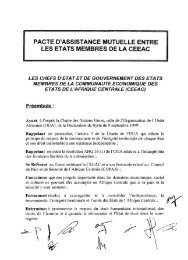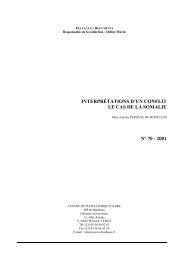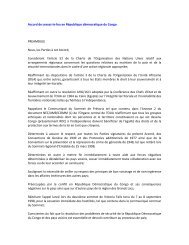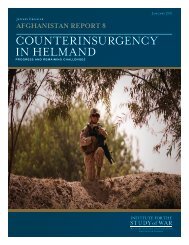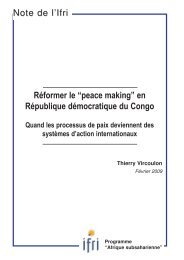Violences sexuelles des casques bleus : Défis et réalisations pour ...
Violences sexuelles des casques bleus : Défis et réalisations pour ...
Violences sexuelles des casques bleus : Défis et réalisations pour ...
You also want an ePaper? Increase the reach of your titles
YUMPU automatically turns print PDFs into web optimized ePapers that Google loves.
<br />
P a g e | 9 <br />
these takes place in countries already seriously affected by systematic and<br />
generalized sexual violence. In this situation, peacekeepers are the last hope of<br />
civilian populations and especially for women. Women suffer a lot from today’s<br />
armed conflicts because they are usually in intra-state conflicts, the main victims<br />
with their children.<br />
This suffering has been invisible for a long time. It has been added into the<br />
international relations security agenda by the feminist movement and academics.<br />
Only the feminists considered that rape was an issue and a threat as important as<br />
traditional strategic issues and threats for international peace and security.<br />
Furthermore, they could understand b<strong>et</strong>ter the tardiness of the intervention of the<br />
international community because they had studied for a long time the<br />
marginalization of women in international politics.<br />
Humanitarian international law is clear: rape and other sexual abuses are a<br />
war crime which must be prosecuted and punished. The same is true when there<br />
is no conflict because international human right law forbids rapes and sexual<br />
abuses. However, troops contributing countries are not currently willing to charge<br />
their own soldiers and the United Nations lacks of power to coerce them to charge<br />
their soldiers. Again, international law is clear: there is a legal obligation to charge<br />
and pursue war criminals. There are no exceptions to that because this obligation<br />
is part of the imperative norms of international law (jus cogens).<br />
The United Nations has adopted many internal measures like the conduct<br />
and discipline team, the zero-tolerance policy, various resolutions of the Security<br />
Council and the General Assembly, the gender advisers, the Secr<strong>et</strong>ary's general<br />
bull<strong>et</strong>ins and the multiple trainings offered to peacekeepers. However, the ones<br />
who could possibly force states to pursuit have not y<strong>et</strong> been adopted.<br />
For this reason, many said the United Nations did nothing about these<br />
issues and even wanted to hide the reality. However this question relies more in<br />
the hands of the member states and more importantly, Geneva Conventions need<br />
to be enforced in the first place by the High Contracting Parties. Before blaming<br />
the United Nations, they are a lot of measures which should be adopted by the<br />
member states. Nevertheless, the United Nations cannot dismiss its responsibility



